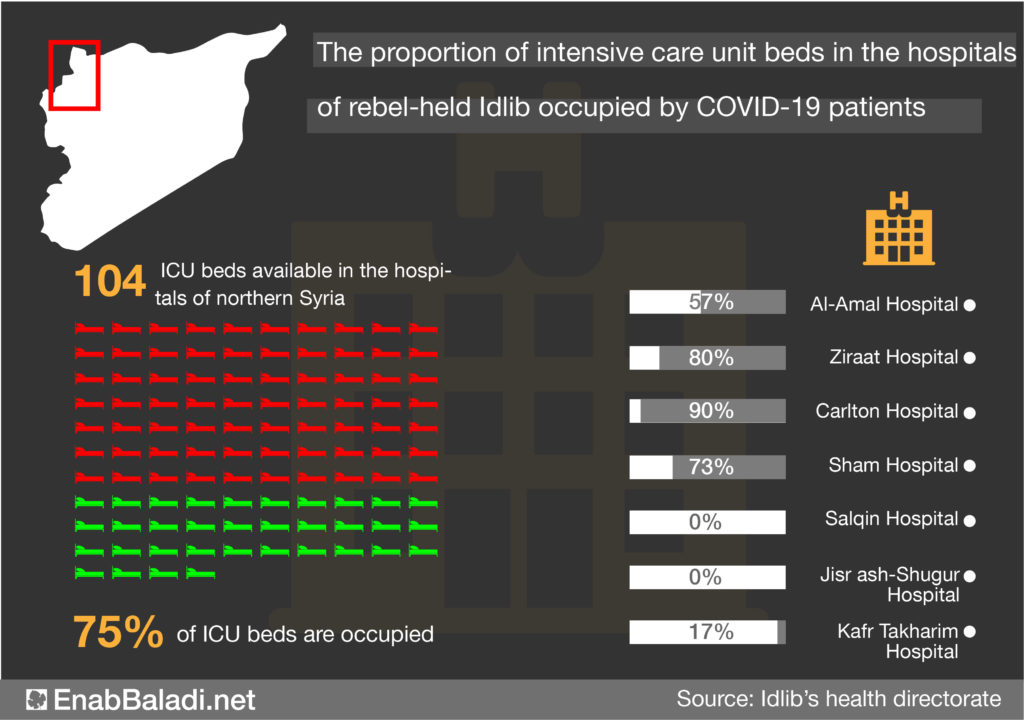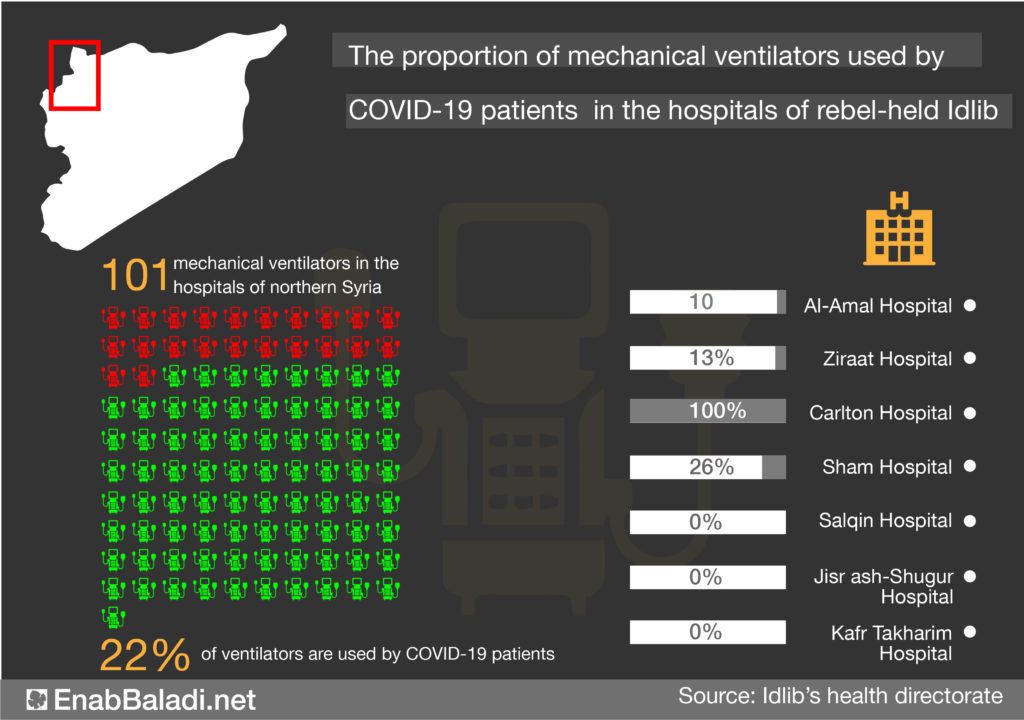



The number of death cases due to the novel coronavirus (COVID-19) has increased in the opposition-controlled areas in northwestern Syria, with repeated warnings made by the medical institutions and the de-facto authorities to take further precautionary measures to limit the spread of COVID-19 infection and with 80 percent of occupied intensive care unit (ICU) beds and mechanical ventilators in Idlib’s hospitals.
The opposition’s Syrian Civil Defence (SCD) teams buried the dead bodies of 111 people who have died from COVID-19 disease after being transported from medical centers and hospitals between 21 and 29 November. Last Friday recorded the highest daily death toll in the area, as the number reached 32 death cases, including 18 men and 14 women.
The SCD indicated that the number of COVID-19 confirmed cases is rising alarmingly because of people’s recklessness to coronavirus restrictions, coinciding with the medical sector’s depletion and its inability to receive all critical cases.
In an interview with Enab Baladi, Salem Abdan, director of Idlib’s health directorate, said, “There is a drastic increase in the COVID-19 cases. Consequently, the number of coronavirus patients who need medical treatment at hospitals and isolation centers is also on the rise, to the point where 80 percent of the ICU beds are occupied.”
Abdan explained that, on average, 50 percent of the ICU beds were occupied, while most of the 80 ventilators were used.
The health cadres are doing their best to confront the coronavirus pandemic with all the available capabilities, according to Abdan. However, given the war, the lack of specialized medical personnel, the lack of material means such as hospitals and medical equipment, and the high number of people living in northwestern Syria compared to the number of medical personnel, there will be difficulties while facing the virus.
Abdan called on the people to take complete preventive measures against the coronavirus disease of 2019: people should stop public gatherings. People with symptoms of COVID-19 should stay at home and self-isolate to reduce the spread of the infections and help the health sector to withstand so that “we overcome the pandemic without catastrophic effects on the health sector and the people.”

The proportion of intensive care unit beds in the hospitals of rebel-held Idlib – 30 November 2020 (Enab Baladi)

The percentage of mechanical ventilators used to treat COVID-19 patients in the hospitals of rebel-held Idlib – 30 November 2020 (Enab Baladi)
On 6 November, the head of the primary health care department in Idlib’s health directorate, Dr. Anas al-Daghim, in an interview with Enab Baladi, warned of the decline in the number of ICU beds in the Ziraat Hospital in Idlib city. He pointed out that the isolation center in the city is full of cases.
The so-called Salvation Government (SG), which has influence in Idlib and part of Aleppo’s western countryside, issued several decisions to control the coronavirus’s spread in its area on 6 November.
Through a circular, the SG suspended the ministries and public entities’ work and stopped the teaching and learning processes in public and private universities, examinations (supplementary exams, graduate studies) in public and private universities, schools, institutes, public and private kindergartens. The SG also closed popular street markets (bazaars), motorcycle markets, and bird markets for an entire week, from 7 to 13 November.
On 28 October 2020, Syria’s Response Coordination Group (SRCG) team suggested imposing a community quarantine in northern Syria for a temporary time as a part of the strategies to confront the coronavirus infection.
The SRCG emphasized the need to give medical staff and humanitarian workers adequate means to reduce risks before “the disaster” occurs, in addition to providing hospitals with the full supplies and equipment they need to face emergencies.
According to the “Support Coordination Unit” data operating in northern Syria, northern Syria recorded 15,515 confirmed cases, including 152 deaths and 7,068 recoveries.
if you think the article contain wrong information or you have additional details Send Correction